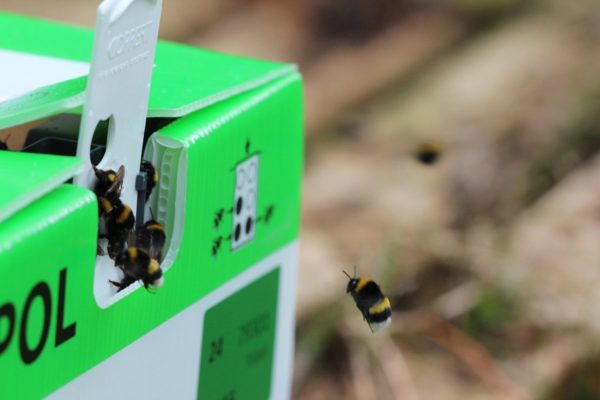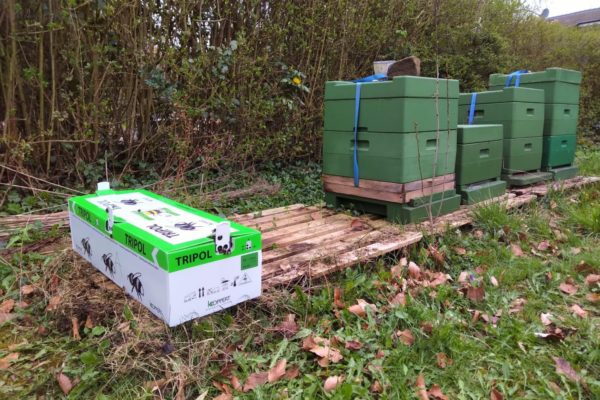In cooperation with the Institute for Environmental Research, RWTH Aachen and the University of Belgrade, Serbia, the two-year project “BeeMonitor” has started. In this project, the pesticide and heavy metal contamination of the honey bee (Apis mellifera) and the dark ground bumblebee (Bombus terrestris) is being investigated at various locations. An urban site, an agricultural site and a transitional site between urban and rural areas in Aachen and Belgrade were selected. In this way, the pollutant profiles of these differently characterised sites will be compared with each other. It will also be very interesting to compare the pollutant profiles between Serbia and Germany, and between the honey bee and the dark ground bumblebee.
In cooperation with three beekeepers from Aachen, bumblebee colonies were placed as close as possible to bee colonies at the beginning of April (see Figure 1) to ensure similar exposure. They will now remain there for a month and pursue their natural occupation (see Figure 2). Bee and bumblebee colonies were placed in Serbia at the same time. The sites in Serbia will be visited by one of our staff and a PhD student from RWTH in mid-May. In return, two PhD students and a postdoc from Serbia will come to Aachen in June to learn from each other and to promote intercultural exchange. The project is funded by the German Academic Exchange Service (DAAD).
News
BeeMonitor – Pollutants in bees and bumblebees in cooperation with Serbia
©2021 gaiac - Research Institute for Ecosystem Analysis and Assessment at RWTH Aachen University e.V. | Contact | Imprint | Privacy statement



